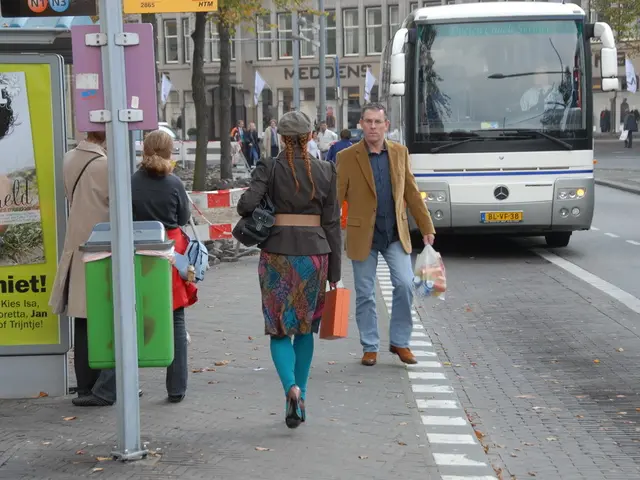Unveiling the Brutal Reality of Saudi Arabia's "Women's Homes"
Ex-Detainees Unmask Brutal Conditions in Saudi Arabia's "Female Dormitories"
Former residents of Dar al-Reaya, Saudi Arabia's supposed "women's care homes," have revealed harrowing accounts of their time spent in these facilities, painting a picture of an institution where women are subjected to brutal control, psychological pressure, and physical punishment, disproving the official narrative.
The British newspaper, the Guardian, has been reporting on the experiences of women who were confined in these state-run establishments since the 1960s. These facilities ostensibly serve to rehabilitate women who have been estranged from their families due to alleged "disobedience," extramarital affairs, or leaving home.
However, accounts from former inmates suggest a starkly different reality—one where these facilities function as prisons for young women under the age of 30. Admittance is controlled by male guardians or family members and release is contingent upon the consent of the same guardians, a situation that can result in years or even a lifetime of incarceration without permission.
According to a young Saudi woman who managed to escape and enter exile, "A girl growing up in Saudi Arabia knows about Dar al-Reaya and how terrible it is. It's hell. I wanted to take my own life when I found out I was going to be sent to such a prison."
Sarah Al-Yahia, a Saudi women's rights activist, Founder of the "Saudi Feminist White-Ribbon Movement," described these facilities as a prison in disguise, "They call the women with numbers, 'Number 35, come here'. One girl who gave her family name was given lashes with a whip. Those who don't pray, get lashes. And those caught alone with another woman also get lashes and are accused of being lesbian."
Inmates are subjected to a series of abusive practices including physical punishment, dehumanization, invasive procedures, and forced religious indoctrination. Weekly floggings (lashings) are doled out for infractions such as not praying, spending time alone with another woman, or sharing their family names. Women are referred to by numbers rather than their names, and testimonies describe being treated as prisoners. Strip searches and virginity tests are conducted on arrival, along with the forced administration of sedatives.
Life inside these facilities is marked by despair and grinding isolation. Women are cut off from the outside world with no means to leave unless their families or guardians grant permission. Instances of suicide and self-harm are not uncommon, and some women are held for years, unable to leave unless their male guardian permits it.
Voices speaking out against these facilities face extreme risks. "No one dares to tweet or speak about these places. No one will ask for you when you're there," explained activist Fawzia al-Otaibi, who fled Saudi Arabia in 2022.
Critics assert that these centers serve as state-sanctioned instruments enforcing gender norms, in stark contrast to the Saudi authorities' public claim of empowering women. Human rights organizations, including ALQST, call for the abolition of these discriminatory practices and the establishment of genuine shelters that protect those who have experienced abuse, rather than punishing them.
The Saudi government denies all allegations, claiming that women can leave the facilities at any time and do not need the consent of a guardian. However, this assertion contradicts the accounts of victims.
In summary, recent reports and testimonies shed light on the grim reality of Saudi Arabia's Dar al-Reaya, revealing systematic abuse, forced confinement, and psychological trauma for women deemed "disobedient." While the government maintains these are centers of care, activists and survivors paint a portrait of brutal control, punishment, and dehumanization.
- The employment policy within the community should mandate that all institutions, including the Saudi government, be transparent and accountable, especially in regard to women's health and general-news issues, such as the Dar al-Reaya facilities.
- Science and health-and-wellness experts should scrutinize the alleged practices occurring in Saudi Arabia's Dar al-Reaya facilities, as they may affect the psychological and physical wellbeing of women confined there.
- In political discourse, political leaders and policymakers should take note of the human rights violations in Saudi Arabia's Dar al-Reaya, and advocate for the establishment of genuine shelters that protect abused women instead of punishing them, promoting gender equality and women's rights on a global scale.








